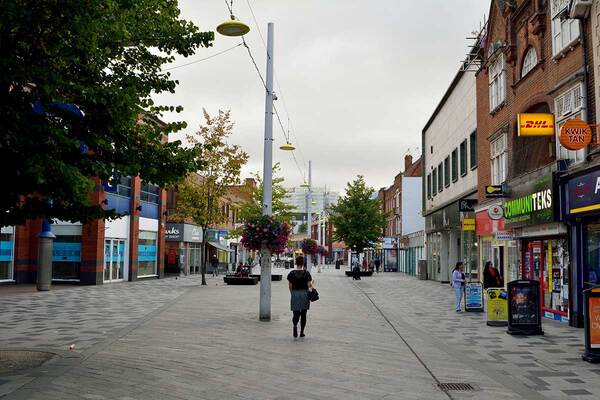You are viewing 1 of your 1 free articles
Troubled council weighs options for loss-making private housing company used to meet homelessness duty
Slough Borough Council is assessing options for a loss-making private housing company it owns, which has suffered from poor oversight and governance, and has no functioning board.
A report to a cabinet committee meeting set out a series of actions for James Elliman Homes (JEH) must take. JEH was set up by the council in 2017 and it owns assets worth more than £55m.
Actions include carrying out a skills audit of its board, submitting details of support it needs to operate properly, and providing evidence that conflicts of interest are being managed by the end of this month. On the last point, the report warned of issues relating to council officers taking up directorships.
The council also said it would need to see a draft business plan for JEH by 18 October, setting out options for returning the firm to profitability, alongside risks and mitigations.
JEH has seen its stock extensively used as temporary accommodation, according to this month’s report, despite being originally set up as a venture to house key workers and provide accommodation for people on lower-priority rehousing bands.
“In its first years, at least 121 families in temporary accommodation were placed into JEH properties,” it said. “At present, about 80% of properties are being rented at [Local Housing Allowance] level or below, bringing in significantly less income than envisaged in the original plan.”
“The JEH portfolio includes 168 individual properties and 46 leased to the council and used for temporary accommodation,” it added. “Of the 168, circa 130 are housing tenants placed by SBC [Slough Borough Council] to discharge homelessness duty.”
Slough Council has been racked by financial difficulties over recent years. In 2021, it issued a Section 114 notice, declaring de facto bankruptcy.
Government-appointed commissioners have been involved at the council since late 2021; they reported “insufficient and inconsistent” progress earlier this year.
Under statutory directions stemming from their work, the council must consider the case for continuing with subsidiary companies it owns, including whether it can adequately oversee them. Companies House has threatened to strike off the firm because of JEH failing to file accounts within statutory timescales.
The council’s report said it would be conducting an options appraisal for JEH that would be “informed by the recommendations made by local partnerships and to inform [the firm’s] business plan”.
At the meeting on 12 September, Dexter Smith, leader of Slough Council, said he would ensure tenants’ rights are reserved and promised that the local authority would not be “casting them adrift”.
The council has begun an improvement plan across its housing services, after an internal report said it is “failing” in its management of temporary accommodation.
In addition to the lower levels of income being brought in by the firm’s homes, the report said that charging by JEH, whose housing management functions are delivered by council staff, had been “haphazard” with no detailed accounts being kept.
“Management of the properties has been poor with tenants being allowed to build up very large rent arrears and most licences not being renewed or cancelled,” it added.
“Originally all tenants were on [assured shorthand tenancies] most of which have become rolling periodic tenancies… which may prove difficult [to terminate] if no-fault eviction is outlawed.”
The report described the way people had been housed via JEH as creating “an ad hoc temp-to-perm” scheme and warned that ending tenancies would be likely to create a duty on the council’s part to rehouse people.
Social landlords were likely to be the only interested parties in the event of JEH’s stock being sold off because of the issues with rent levels, the council’s report highlighted.
Further complicating things is the condition of some of JEH’s stock, which is a mixture of second-hand street properties and some new build flats, which were bought on the open market using council money.
“Many of the homes were or are in poor condition and have required investment to ensure compliance with fire safety and other private sector housing standards,” the report said.
It added that further information around future investment would be shared once JEH has developed a new business plan.
The company’s future is expected to be discussed further at the council’s cabinet committee – asset disposals meeting on 17 October.
Inside Housing has approached Slough Council for further comment around possible next steps and what commitments it will make to JEH’s tenants.
Sign up for our Council Focus newsletter
Already have an account? Click here to manage your newsletters











